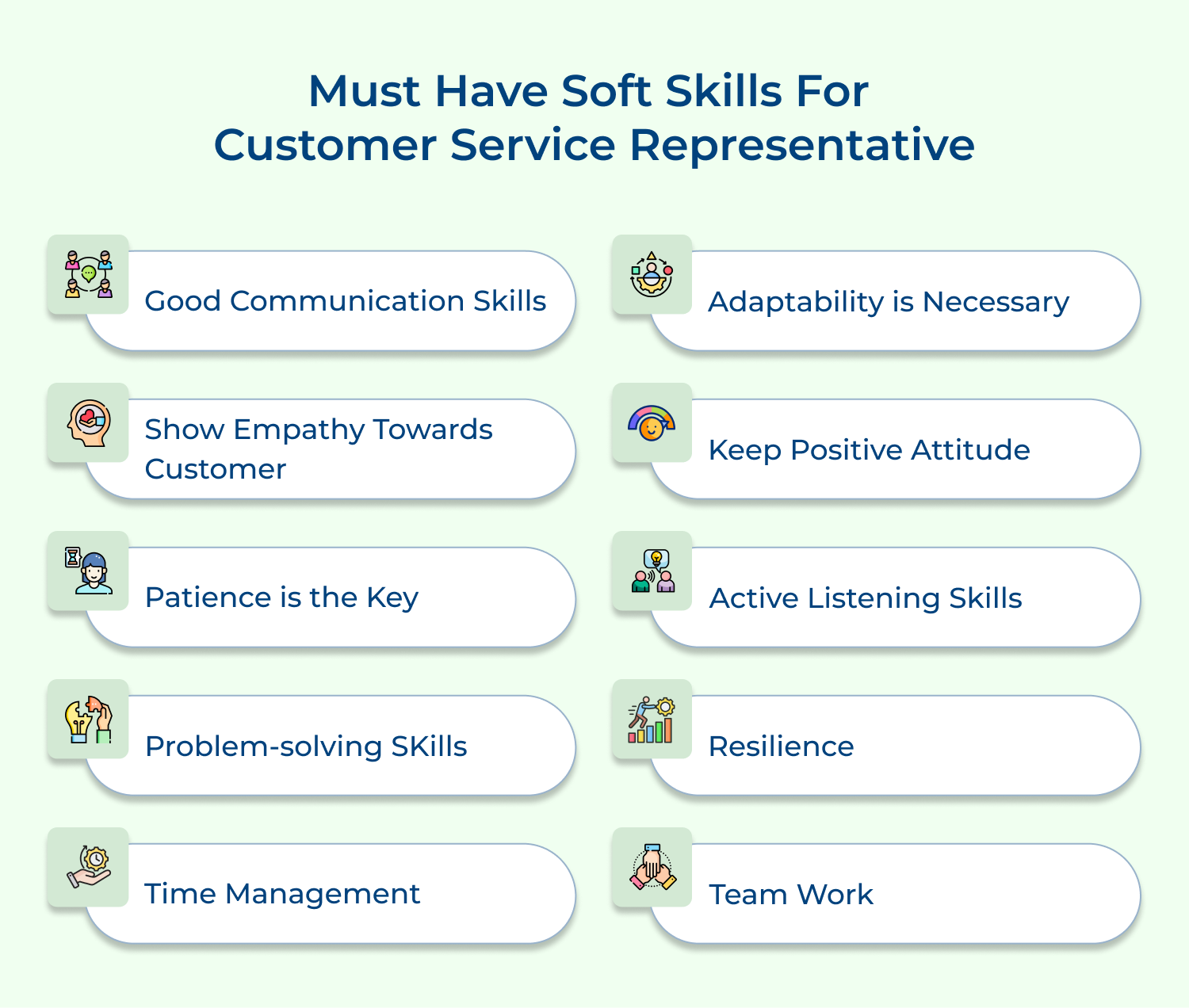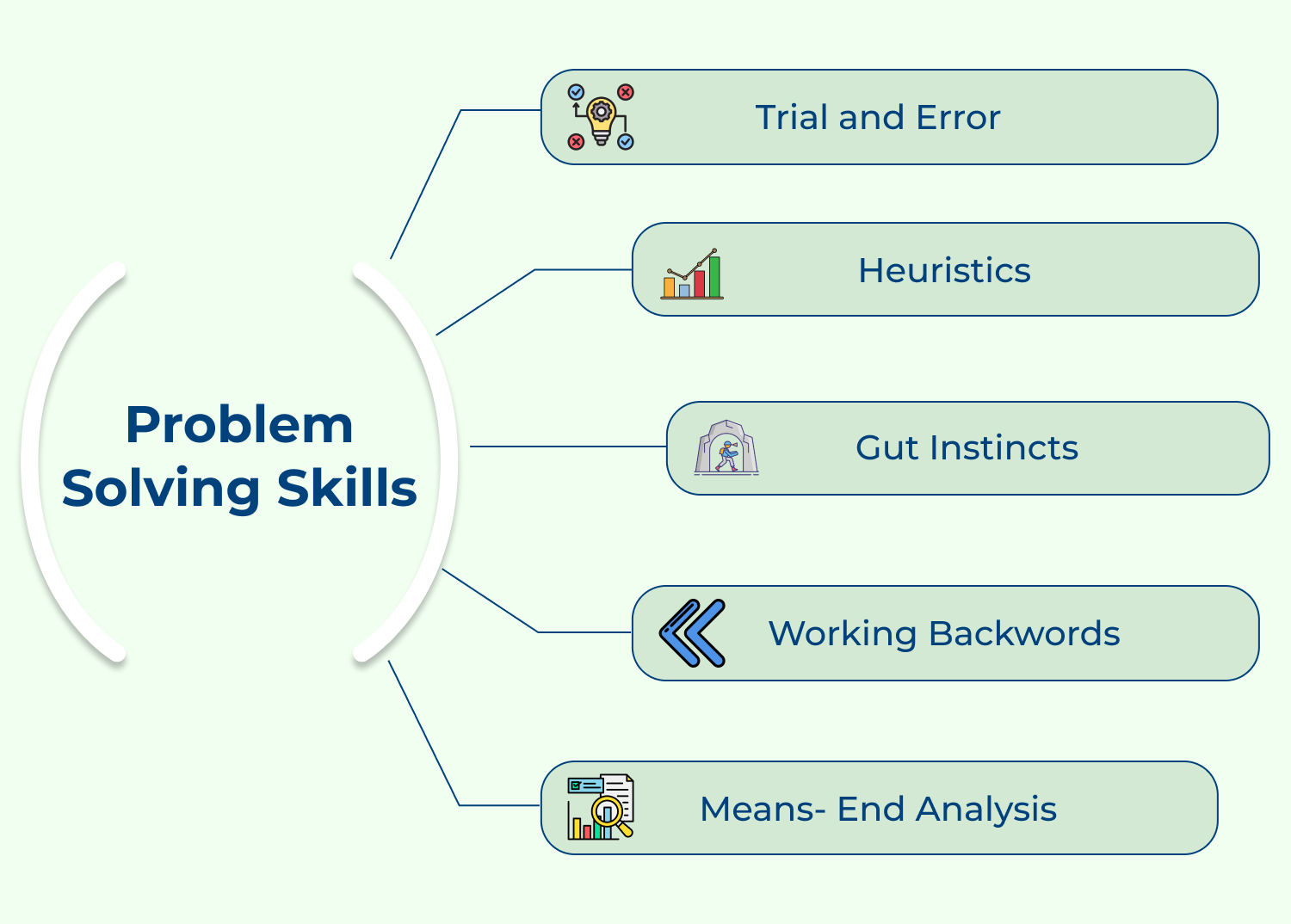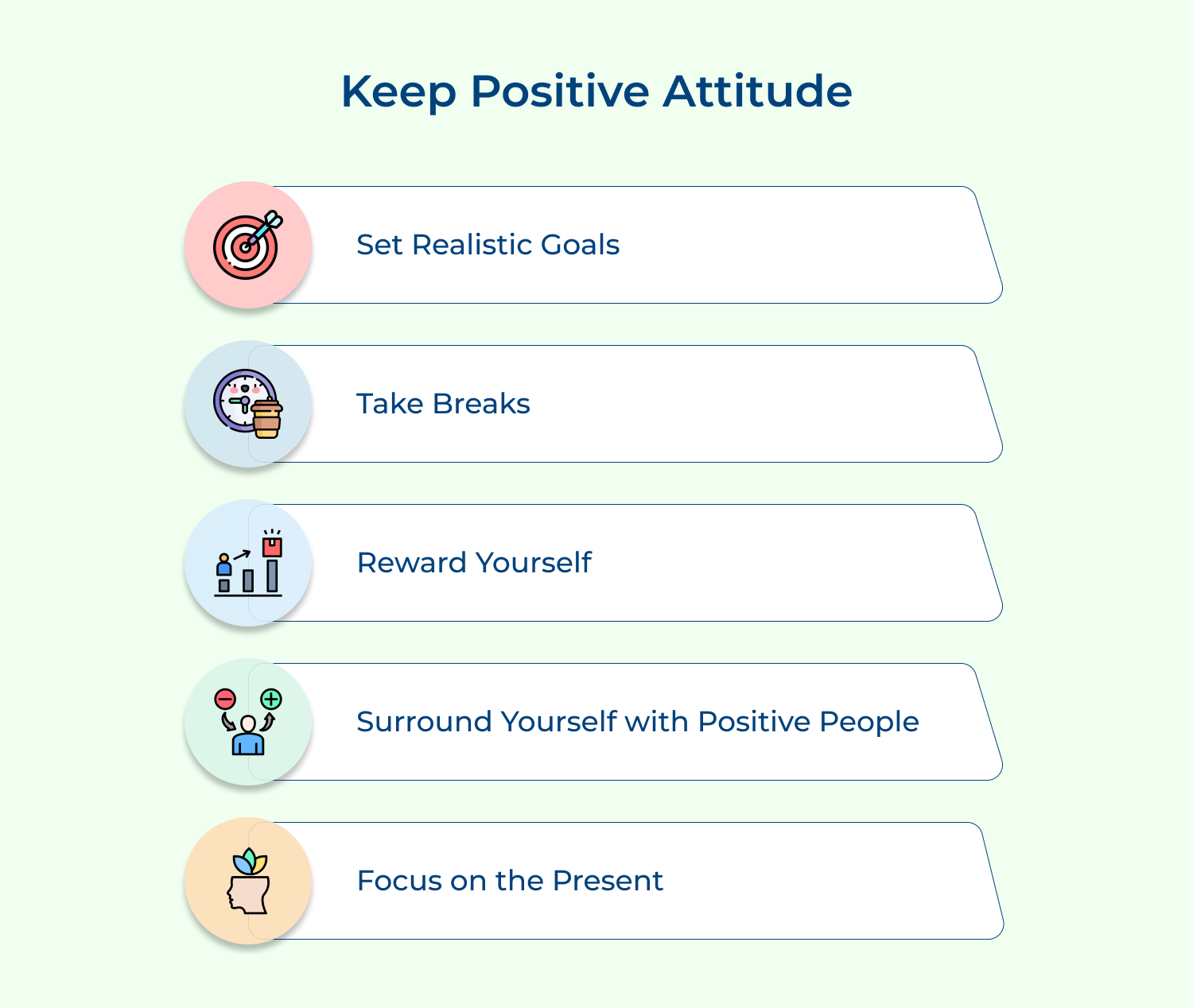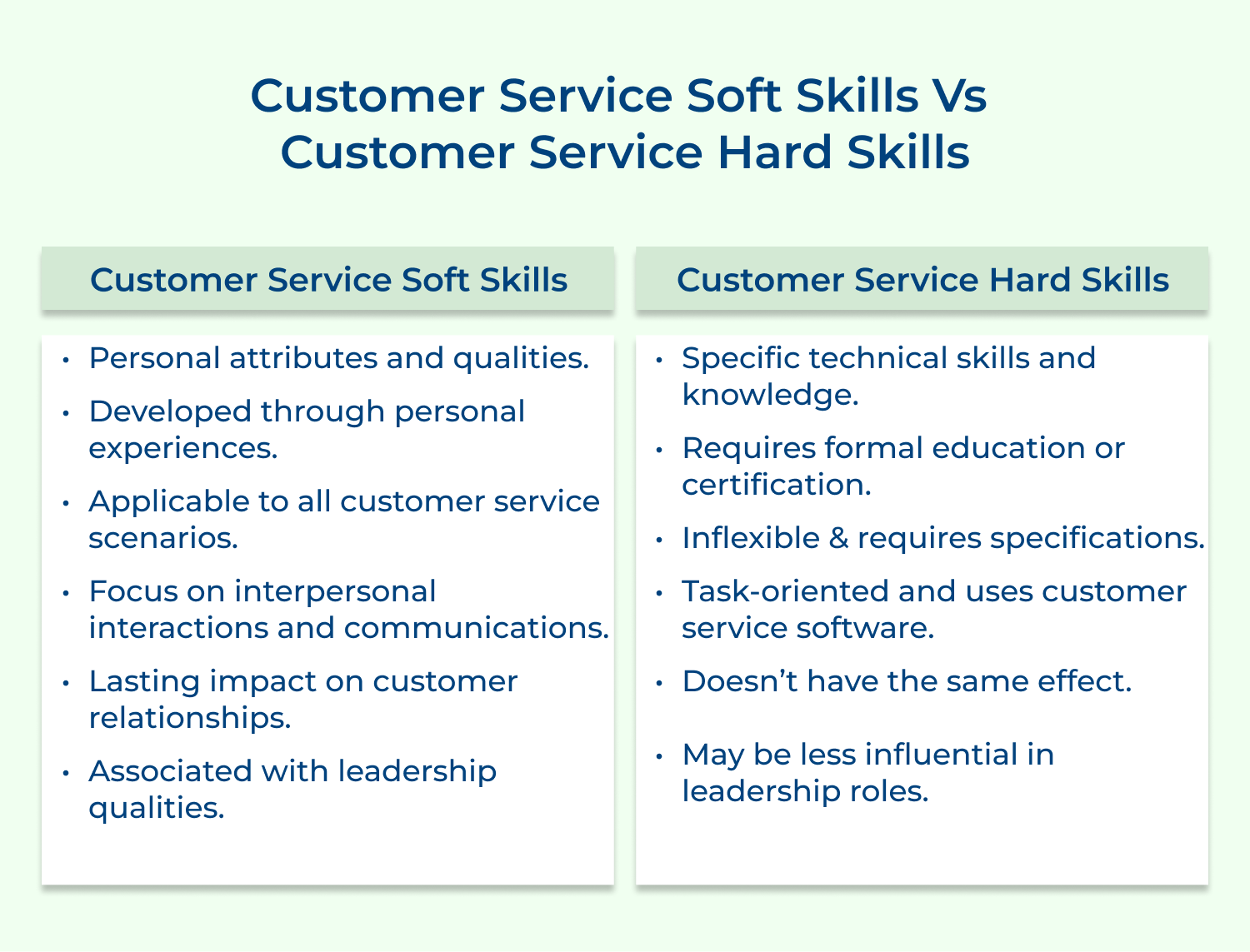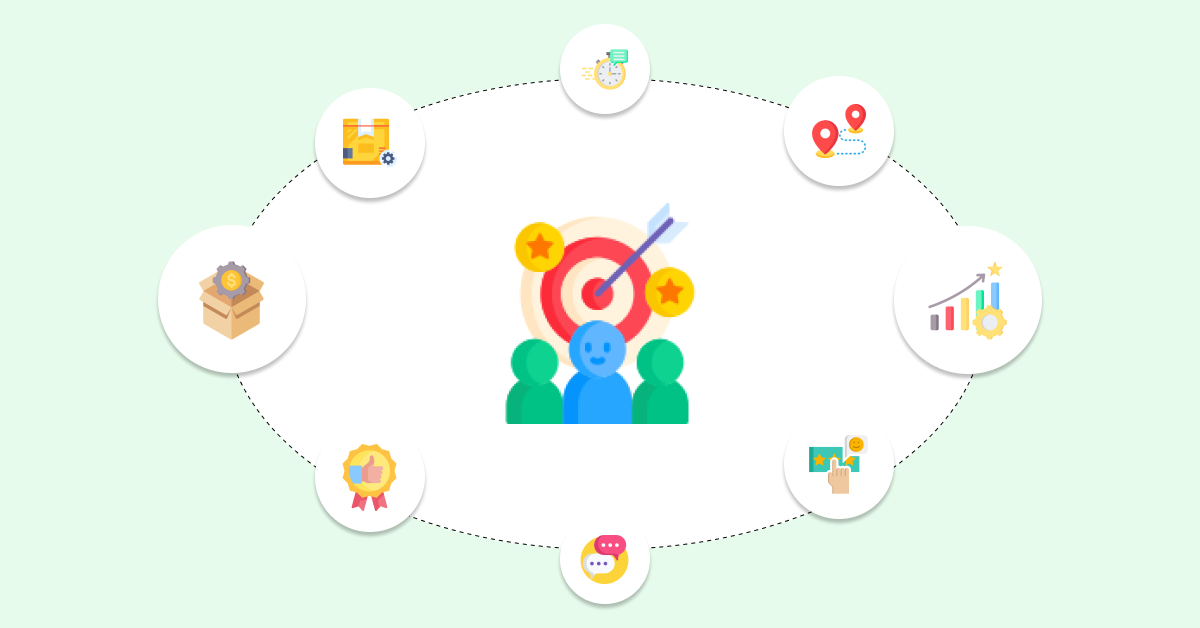Customer service soft skills refer to personal attributes and qualities that enable a person to interact effectively as well as harmoniously with others. Hard skills are specific technical skills and knowledge that are learned through training along with education.
Often developed through personal experiences, self-reflection and observation soft skills can be honed through practice and continuous learning. Hard skills , when observed carefully, often require formal education, certification or technical training.
Soft skills are transferable and can be applied in various customer service scenarios. They can be utilized across different industries as well as situations. Hard skills tend to be more specific and often require training or education in a particular field.
Focusing on interpersonal interactions and communication soft skills involves qualities like empathy, active listening, problem-solving and emotional intelligence. Hard skills are more task-oriented and involve actions such as using software, process knowledge, data analysis, technical expertise, etc.
Customer support soft skills have a long-lasting impact on customer relationships and loyalty. Customers value the empathy, attentiveness and problem-solving abilities of customer service representatives. Hard skills, although important, may not have the same long-term effect on customer satisfaction.
Usually associated with leadership qualities, customer support soft skills enable customer service representatives to inspire and motivate their team members. Hard skills, while important, may be less influential in leadership roles.
Soft skills play a significant role in customer satisfaction, as they determine how well a customer feels understood, valued and supported. Hard skills, while being crucial, may have less direct impact on customer satisfaction.
Boost Your Customer Service with Adequate Soft Skills
Customers expect personalized and efficient interactions that leave a lasting positive impression. While technical skills and product knowledge are significant, it is the soft skills that truly differentiate a business as well as create a loyal customer base.
Developing and enhancing your soft skills is crucial in boosting your customer service. Having effective communication, empathy, patience and working well in a team, you’ll be able to provide outstanding customer support that leaves a lasting impression. Remember, it’s not just about the product or service you offer, but also the experience you provide to your customers that sets you apart from the competition.


